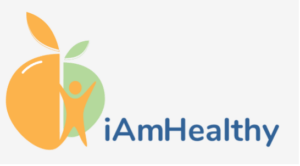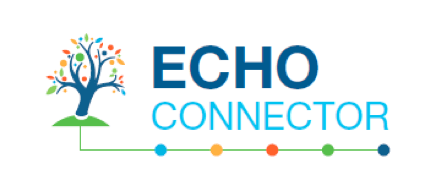
Welcome to the ECHO Connector! The Environmental influences on Child Health Outcomes (ECHO) Program is a research program at the NIH with the mission to enhance the health of children for generations to come. The ECHO Connector will keep you informed of program news and our latest research findings.
Message from Matt
A message from the ECHO Director, Matthew W. Gillman, MD

November is National Diabetes Month. Diabetes is a disease that occurs when your blood glucose, also called blood sugar, is too high. It can lead to health problems related to your eyes, kidneys, nerves, and heart, and is linked to some types of cancer. Gestational diabetes is diabetes that first appears during pregnancy. This month’s Research Spotlight showcases a recent ECHO study that explores how gestational diabetes, and prenatal depression might be associated with a person’s risk for developing postpartum depression.
Also, around this time each year, I find myself reflecting on how far the ECHO Program has come and where we are heading. I am pleased to announce three major milestones for our program.
First, de-identified data from the ECHO Program are now available as a resource for the entire scientific community. This first public-use version of ECHO-wide Cohort data covers information that our 69 cohort studies collected from 41,299 participants. This momentous step fulfills both a key strategic goal of the ECHO Program and an obligation to U.S. taxpayers for their investment in our research. You can learn more about this dataset and how researchers can request access to it in this issue of the Connector.
Second, our investigators have now published in medical journals more than 1,000 papers about their ECHO research. These publications cover a wide range of topics in child health, and demonstrate how ECHO research is filling evidence gaps on the long-term influences of prenatal and early childhood factors on child and adolescent health. I invite you to visit our ECHO publication database to explore any of these papers.
Finally, we released 7 new Cohort Funding Opportunity Announcements (FOAs) to invite applications to extend and expand the ECHO Cohort to further investigate the influences of a broad range of early exposures from society to biology, including the preconception period, across ECHO’s five key child health outcome areas among diverse populations. I look forward to the next phase of ECHO, and to continued partnership with all of you in our mission to enhance the health of children for generations to come.

—Matthew W. Gillman, M.D., S.M.
Back to top
Research Spotlight
ECHO Researchers Examine Associations between Gestational Diabetes, Prenatal Depression, and Postpartum Depression
 Collaborative ECHO research led by Lauren C. Shuffrey, PhD of Columbia University examines the effects of gestational diabetes, a type of diabetes that develops during pregnancy, and prenatal depression on a person’s risk for developing postpartum depression. The study found that those with both gestational diabetes and prenatal depression were at an increased risk for postpartum depression. But gestational diabetes on its own, without prenatal depression, was not associated with increased risk for postpartum depression.
Collaborative ECHO research led by Lauren C. Shuffrey, PhD of Columbia University examines the effects of gestational diabetes, a type of diabetes that develops during pregnancy, and prenatal depression on a person’s risk for developing postpartum depression. The study found that those with both gestational diabetes and prenatal depression were at an increased risk for postpartum depression. But gestational diabetes on its own, without prenatal depression, was not associated with increased risk for postpartum depression.
This research, titled “Gestational Diabetes Mellitus, Prenatal Maternal Depression, and Risk for Postpartum Depression: An Environmental Influences on Child Health Outcomes (ECHO) Study,” is published in BMC Pregnancy and Childbirth.
“Gestational diabetes rates tend to be around 10% in the United States, and they’re around 9-10% in our ECHO cohort, but there is a lot of variability based on race and ethnicity and in different countries,” said Dr. Shuffrey. “We know gestational diabetes is linked to adverse pregnancy outcomes, birth outcomes, and long-term neurodevelopment outcomes, but not many studies have looked at this specific relationship.”
Previous research has generally not examined the association between the combination of gestational diabetes and prenatal maternal depression and postpartum depression. To address this question, the researchers looked at data from 5,822 participants in 16 ECHO cohorts across 13 U.S. states and Puerto Rico. A total of 4,606 participants had neither gestational diabetes nor prenatal maternal depression, 416 had gestational diabetes only, 689 had prenatal maternal depression only, and 111 had both gestational diabetes and prenatal maternal depression.
“Being able to utilize ECHO-wide data to ask research questions is hugely beneficial because we’re able to combine lots of different cohorts that have different sociodemographic characteristics, which allows us to have more generalizability to other people within the United States. We’re also able to have larger sample sizes, which leads to the robustness of the data,” said Dr. Shuffrey.
Participants self-reported on their depression symptoms during and after pregnancy using the PROMIS-D (Patient-Reported Outcomes Measurement Information System) scale. The researchers used this data to evaluate the relationships between maternal depression symptoms and gestational diabetes.
The ECHO program is currently working toward analyzing blood samples collected during pregnancy to identify potential factors involved in the relationship between gestational diabetes, prenatal depression, and postpartum depression.
“Right now, we’re working on looking at child behavioral outcomes in relationship to gestational diabetes and perinatal maternal depression. We’re particularly focused on child externalizing behaviors, internalizing behaviors, and autism spectrum behaviors, measured on the preschool version of the child behavior checklist,” said Dr. Shuffrey. “We’re also looking at using Type C biospecimen to look at potential inflammatory mechanisms underlying these associations. We’ll be measuring prenatal maternal inflammatory proteins and maternal blood during pregnancy for a subset of these pregnancies.”
Back to top
News You Can Use
New ECHO Research Finds Changes in Children’s Sleep Habits during the COVID-19 Pandemic

Collaborative ECHO research led by Maristella Lucchini, PhD of Columbia University Irving Medical Center investigates changes in childhood sleep behaviors during the COVID-19 pandemic. The researchers looked at data from 528 children across the United States and found that, during the COVID-19 pandemic, children went to bed later, woke up later, and took longer to fall asleep, but their overall time spent asleep did not change. The study also found that children in minority communities went to bed later, slept less, and took naps more frequently. This research, titled “Impact of the COVID-19 pandemic on children’s sleep habits: an ECHO study,” is published in Pediatric Research.
This study included children aged 4 to 12 from 14 ECHO cohorts across the United States. The ECHO Program’s Sleep Health of Children and Adolescents Questionnaire was used to evaluate children’s sleep habits before the pandemic began and at two time periods during the pandemic. The researchers also collected sociodemographic information from self-reports and medical records.
ECHO researchers found significant changes in children’s sleep habits, as well as differences in children’s sleep behaviors between racial/ethnic groups. However, parental knowledge of the importance of sleep might have contributed to children sleep health. Interviews with 38 participant caregivers revealed they prioritized routines to maintain their children’s amount of sleep but were generally more flexible about bedtimes.
“This is the first study investigating changes in childhood sleep habits in the United States during the COVID-19 pandemic using data collected before and during the pandemic,” said Dr. Lucchini. “The results highlight potential targets for future interventions and support the need to examine and address the root causes of racial and ethnic sleep disparities in childhood.”
Using data from the same cohort of children, ECHO researchers are in the process of analyzing and publishing results on changes in diet, physical activity, and screen time during the COVID-19 pandemic.
IDeA States News
 ECHO IDeA States Pediatric Clinical Trials Network (ISPCTN) research teams from clinics in four states (West Virginia, South Carolina, Delaware and Nebraska) completed a rigorous 6-month pilot study titled iAmHealthy (A Feasibility Trial of the iAmHealthy Intervention for Healthy Weight in Rural Children Recruited from Primary Care) which compared the study behavioral intervention which was a virtual coaching program for kids and families around healthy food and activity habits, with a newsletter on healthy habits. The study evaluated the best methods for recruitment and retention of children and families in rural clinics, while also looking at how much families engaged in the coaching program and how it affected weight and activity levels.
ECHO IDeA States Pediatric Clinical Trials Network (ISPCTN) research teams from clinics in four states (West Virginia, South Carolina, Delaware and Nebraska) completed a rigorous 6-month pilot study titled iAmHealthy (A Feasibility Trial of the iAmHealthy Intervention for Healthy Weight in Rural Children Recruited from Primary Care) which compared the study behavioral intervention which was a virtual coaching program for kids and families around healthy food and activity habits, with a newsletter on healthy habits. The study evaluated the best methods for recruitment and retention of children and families in rural clinics, while also looking at how much families engaged in the coaching program and how it affected weight and activity levels.
After study launch in early 2020, recruitment and retention were significantly affected by the COVID-19 pandemic, requiring the study team to rethink methods that would ensure success for the study. As a result of such creative efforts, the study team recently published a manuscript, “Conducting a Pediatric Randomized Clinical Trial During a Pandemic: A Shift to Virtual Procedures,” in the Journal of Clinical and Translational Science describing the changes they made to ensure the success of the study during the pandemic.
This paper addressed the challenges of switching from in-person recruitment and enrollment processes to completely virtual processes during a pandemic when it became impossible for study personnel to see potential trial participants and enroll them into the trial. The shift to completely virtual procedures affected the timeline and costs of the study, due to added shipping times; recruitment and enrollment procedures, as all consent and assent procedures had to occur via telephone or teleconference rather than face to face; and conducting height and weight measurements with families via videoconference at home rather than in the clinic. The iAmHealthy Study Teams successfully developed virtual methods to achieve the study goals despite the challenges introduced by the pandemic and identified several strategies for remote research that can be used in future studies.
Funding Opportunity Announcement Update
As a reminder, November 29, 2022 is the last chance to submit applications for the ECHO Pregnancy Cohort Study Sites, RFA-OD-22-017, Funding Opportunity Announcement (FOA) released by the ECHO Program Office (see NOT-OD-23-007 for more detail.). Check out our website for pre-recorded informational webinars and Frequently Asked Questions (FAQs). If you have questions, please reach out to S. Sonia Arteaga: sonia.arteaga@nih.gov.
ECHO Data Now Available as Resource for Scientific Community
The ECHO Program is pleased to announce that de-identified new and extant ECHO data is now available through the Data and Specimen Hub (DASH). DASH is a centralized resource established by the National Institute of Child Health and Human Development (NICHD) that allows researchers to share and access de-identified data from studies via a controlled-access mechanism.
This first public-use version of ECHO-wide Cohort data covers information collected on 41,299 participants and provides a valuable resource for the scientific community. This momentous step fulfills both a key strategic goal of the ECHO Program and an obligation to U.S. taxpayers for their investment in our research.
Researchers can now request access to these data by creating a DASH account and submitting a Data Request Form. The NICHD DASH Data Access Committee will review the request and provide a response in approximately two to three weeks. Once granted access, researchers will be able to use the data for up to three years. See the DASH Tutorial for more detailed information on the process.
Back to top
ECHO Discovery
ECHO Discovery is a monthly webinar series with educational presentations for the ECHO community, stakeholders, and the public.
November ECHO Discovery
Bridging differences across cohorts in the relationship between prenatal secondhand smoke exposure and birth weight: Transportability of effect estimates in the ECHO consortium

On November 9, Andreas Neophytou, ScD of Colorado State University presented for ECHO Discovery on a framework that could help ECHO researchers evaluate whether data from one ECHO cohort can be used to estimate the effect of a phenomenon in another ECHO cohort with different sociodemographic characteristics.
The transportability of effects framework is a method researchers can use to determine what research questions can be answered using a given dataset or technique. In his presentation, Dr. Neophytou discussed how his team applied a causal inference framework—a transportability of effects framework that attempts to determine if differences in a given effect can actually be attributed to differences between the cohorts (e.g., differences in sociodemographic characteristics). In this case, Dr. Neophytou and his team used this method to find that the relationship between secondhand smoke exposure and birth weight is at least partially influenced by sociodemographic characteristics.
October ECHO Discovery
Prenatal mental health and lifestyle exposures in association with child growth and neurodevelopment

On October 12, Julie Herbstman, PhD, ScM of the Columbia Center for Children’s Environmental Health (CCCEH) presented for ECHO Discovery on how ECHO research can be leveraged to examine trends in environmental exposures and their impact on children’s health.
The CCCEH is home to three longitudinal birth cohorts of children born in New York City, and it studies early impacts of urban environmental exposures on child health outcomes. During her presentation, Dr. Herbstman presented examples of how longitudinal studies can be used to monitor environmental exposures over time—such as the concentration of toxic chemicals in breast milk, use of indoor pesticides, and air pollution and traffic—and help assess the effectiveness of policies aimed at reducing these exposures.
Dr. Herbstman highlighted additional opportunities within ECHO research to examine ongoing trends in environmental exposures and inform programs, practices, and policies aimed at reducing these exposures. Because participants in ECHO have been recruited over time and across a large geographic area, researchers can also leverage ECHO’s robust data to understand the impact of current and future policies and interventions on children’s health outcomes.
Learn More about ECHO Discovery
Back to top

Subscribe to receive a copy of the ECHO Connector newsletter through email.
Questions?
Contact the ECHO Program Office.



